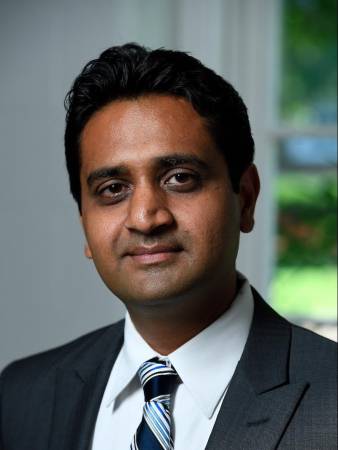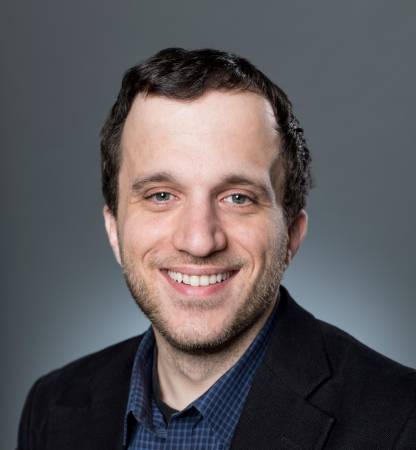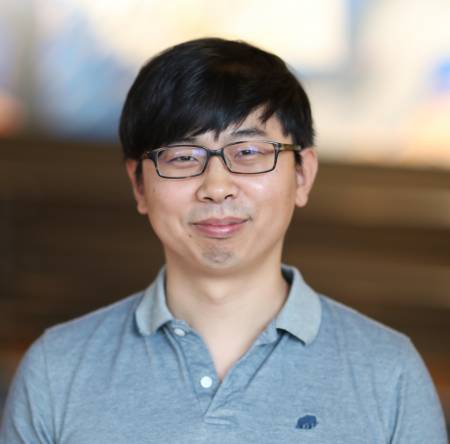Seminar
Activity Understanding of Scripted Performances
Abstract: The PSU Taichi for Smart Health project has been doing a deep-dive into vision-based analysis of 24-form Yang-style Taichi (TaijiQuan). A key property of Taichi, shared by martial arts katas and prearranged form exercises in other sports, is practice of a scripted routine to build both mental and physical competence. The scripted nature of routines [...]
Domain adaptive object detection
Abstract: Recent advances in deep learning have led to the development of accurate and efficient models for object detection. However, learning highly accurate models relies on the availability of large-scale annotated datasets. Due to this, model performance drops drastically when evaluated on label-scarce datasets having visually distinct images. Domain adaptation tries to mitigate this degradation. In [...]
Visual Understanding across Semantic Groups, Domains and Devices
Abstract: Deep neural networks often lack generalization capabilities to accommodate changes in the input/output domain distributions and, therefore, are inherently limited by the restricted visual and semantic information contained in the original training set. In this talk, we argue the importance of the versatility of deep neural architectures and we explore it from various perspectives. [...]
Towards Robust Human-Robot Interaction: A Quality Diversity Approach
Abstract: The growth of scale and complexity of interactions between humans and robots highlights the need for new computational methods to automatically evaluate novel algorithms and applications. Exploring the diverse scenarios of interaction between humans and robots in simulation can improve understanding of complex human-robot interaction systems and avoid potentially costly failures in real-world settings. [...]
Topology-Driven Learning for Biomedical Imaging Informatics
Abstract: Thanks to decades of technology development, we are now able to visualize in high quality complex biomedical structures such as neurons, vessels, trabeculae and breast tissues. We need innovative methods to fully exploit these structures, which encode important information about underlying biological mechanisms. In this talk, we explain how topology, i.e., connected components, handles, loops, [...]
Lessons from the Field: Deep Learning and Machine Perception for field robots
Abstract: Mobile robots now deliver vast amounts of sensor data from large unstructured environments. In attempting to process and interpret this data there are many unique challenges in bridging the gap between prerecorded data sets and the field. This talk will present recent work addressing the application of machine learning techniques to mobile robotic perception. [...]
Learning generative representations for image distributions
Abstract: Autoencoder neural networks are an unsupervised technique for learning representations, which have been used effectively in many data domains. While capable of generating data, autoencoders have been inferior to other models like Generative Adversarial Networks (GAN’s) in their ability to generate image data. We will describe a general autoencoder architecture that addresses this limitation, and [...]
Building Intelligent and Visceral Machines: From Sensing to Application
Abstract: Humans have evolved to have highly adaptive behaviors that help us survive and thrive. As AI prompts a move from computing interfaces that are explicit and procedural to those that are implicit and intelligent, we are presented with extraordinary opportunities. In this talk, I will argue that understanding affective and behavioral signals presents many opportunities [...]
GANcraft – an unsupervised 3D neural method for world-to-world translation
Abstract: Advances in 2D image-to-image translation methods, such as SPADE/GauGAN, have enabled users to paint photorealistic images by drawing simple sketches similar to those created in Microsoft Paint. Despite these innovations, creating a realistic 3D scene remains a painstaking task, out of the reach of most people. It requires years of expertise, professional software, a library [...]
Learning Optical Flow: Model, Data, and Applications
Abstract: Optical flow provides important information about the dynamic world and is of fundamental importance to many tasks. In this talk, I will present my work on different aspects of learning optical flow. I will start with the background and talk about PWC-Net, a compact and effective model built using classical principles for optical flow. Next, [...]









